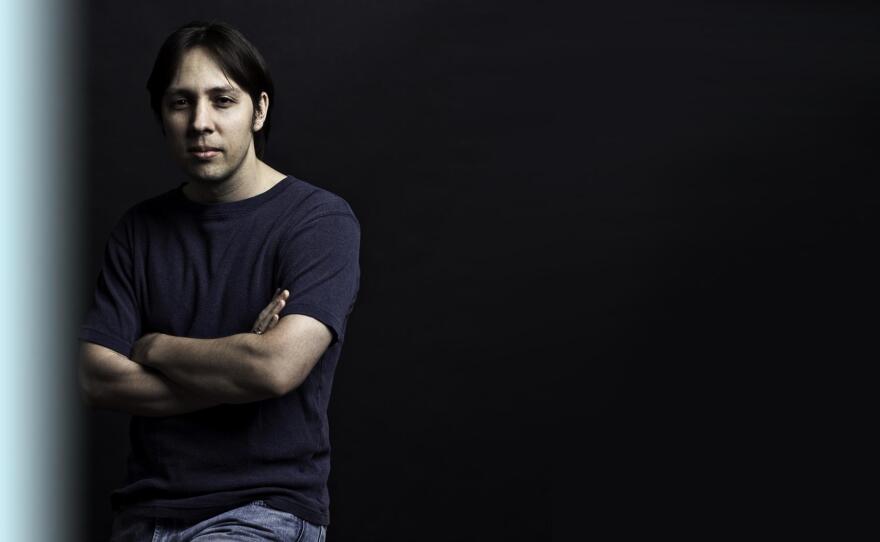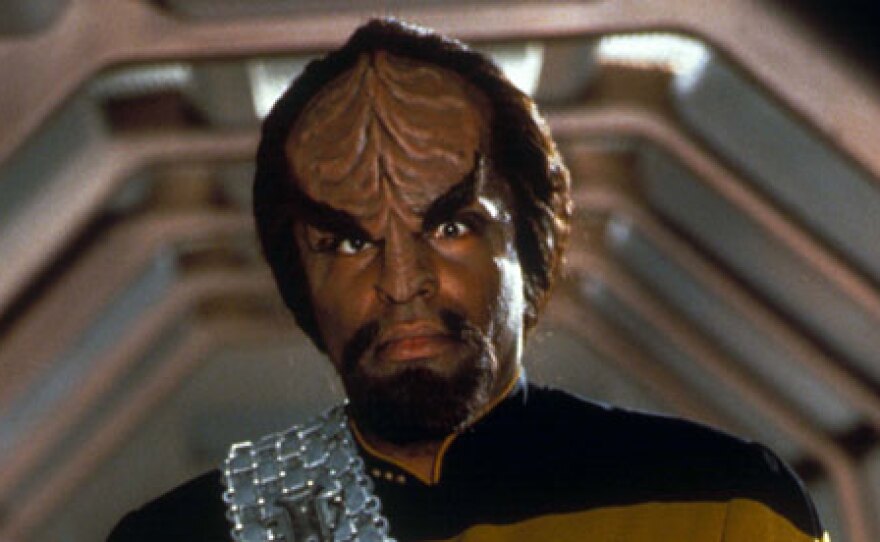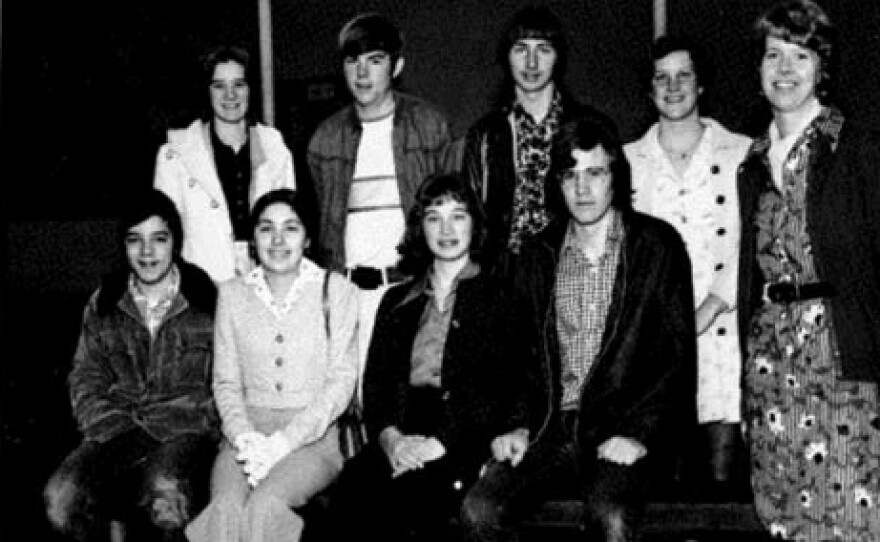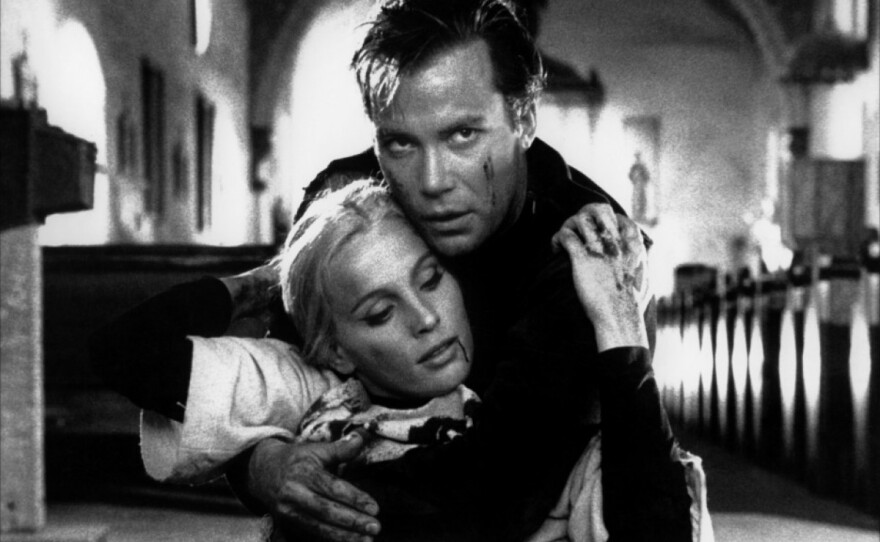David Peterson and his wife are fans of the NBC comedy “The Office.” Imagine how great it must have felt when, relaxing in front of the television, they saw a language David created being spoofed on the show.
Not many people have made up their own language. Peterson has invented 21 languages, though he insists some of them are terrible. His most famous language creation is Dothraki, which is spoken by a nomadic, warlike tribe on the HBO hit show “Game of Thrones.”

It was Dothraki that made its way onto “The Office,” in a very funny set piece.
The character of Dwight, whose self-awareness measures the size of a pinhead, tries to teach the pretty and naïve receptionist named Erin how to speak Dothraki.
Dwight smacks his pointer on a posterboard where there’s a list of conjugated verbs.
The Dothraki are a violent people; the raping and pillaging sort. So Erin learns how to conjugate the verb to “throat rip.” I throat rip. You throat rip. He, she, it throat rips. As Erin tries to form the sounds in the back of her throat, Dwight yells “say it with more of a barbaric growl. You’re yelling it from the back of a horse!” The parody worked brilliantly and the Petersons were happy.
Getting The Gig
It’s amazing how natural the made-up Dothraki language feels within the dark, medieval world of “Game of Thrones.” Full disclosure: I am an unabashed fan of the show. I find it totally absorbing, which surprised me. It’s bloody, violent, grim and pretty lurid. Not the stuff I usually go for, but when combined with high production values, a gripping narrative and strong character development, it works for me. I’ve read two of the books on which “Game of Thrones” is based. There are five total in the epic fantasy series known as “A Song of Ice and Fire,” the creative output of novelist George R.R. Martin. Since the books have a massive fan base, the creators of the HBO series, D.B. Weiss and David Benioff, have been wise in remaining faithful to the books.
Needless to say, I was excited to interview someone whose ingenuity contributed to “Game of Thrones.” I met David Peterson on the campus of his alma mater, UCSD (Peterson did his graduate work there), where he was guest lecturing to students in the linguistics department.
Peterson didn’t get the job with “Game of Thrones” because he’s well connected in Hollywood. Quite the opposite. Peterson is a member of the Language Creation Society, home to “conlangers,” the term for someone who constructs languages. The society was contacted by the HBO show creators who wanted a fictional language for a horse-loving, warrior tribe. A contest was born and competing conlangers began doing what they do: building a language from scratch.
Peterson worked 12 to 14 hours a day for three weeks creating his version of Dothraki. He won.
Most linguists end up as academics. Peterson now belongs to a small club of linguists and language creators who work in Hollywood, though perhaps not geographically. Peterson is never on the “Game of Thrones” set. He’s sent the script. Once he translates the relevant scenes into Dothraki, he records himself speaking the lines and then sends mp3 files to the actors. The actors then map the emotions onto the Dothraki language for the final performance. Peterson watches his language being spoken for the first time with the rest of us during the telecast. Peterson says for the most part, the actors get it right.
Building a Language from Scratch
When you create a language, you have to build the internal structure — the grammar and the phonetics. “If you’re going to do it responsibly, if you’re going to create something authentic, it’s one of the most intellectually rigorous exercises ever undertaken,” said Peterson. “And that’s really the appeal.”
People create different kinds of languages. If it’s a naturalistic language — that is one tied to a human-like species that is fictional or real — then it has to relate to languages found on earth. “You need to ensure that it has the same amount of irregularity that a natural language does,” explained Peterson. “It should have the same historical depth and complexity that a natural language would have.”

Peterson started with the source material: George R.R. Martin’s novels. There were only 30 Dothraki words in the books, but that gave Peterson a blueprint. His version of Dothraki now includes more than 3,000 words.
Peterson thought he understood how Martin would pronounce the Dothraki (Doth-rack-ee) words found in the books. In one crucial case, he was wrong. He discovered his error upon first meeting Martin. Shortly after the success of “Game of Thrones” first season, Peterson met Martin at a San Diego book signing. He was nervous to meet the beloved author, but introduced himself.
“And he (Martin) said, Oh!, you’re the guy who invented DothrakEYE,” Peterson recalled. “I was like, Wow! I was way off. I would never guess an English speaker would pronounce it like that.” Peterson’s pronunciation is more commonly used, though Martin consistently pronounces Dothraki with a long “i.”
The traditions and mores of Dothraki culture guided Peterson in creating the vocabulary. The Dothraki are expert riders; horses are central to their culture. The Dothraki word for horse was the first word Peterson created. He was also able to rule out certain words. Writing doesn’t exist in the Dothraki’s desert-raiding culture, so Peterson didn’t need to create a word for book.
It’s important that the language evolve “in-world” Peterson explained. If a Dothraki were to walk into a foreign palace filled with books and ask “Why do you read so many books?” it would break the show’s reality for the viewer. Why would a Dothraki even have a word for book if he or she doesn’t write?
Invented Languages and Hollywood


Linguists creating fictional languages for TV shows and movies became popular after the success of “Star Trek’s” Klingon, an alien-sounding language created by linguist Marc Okrand. Some people still speak Klingon. In 2010, an opera sung in Klingon was staged in Berlin. Just walk through downtown San Diego during Comic-Con and you’re likely to hear it.

Grant Goodall teaches language construction in the Linguistics Department at UCSD. He says Klingon set a high bar for how Hollywood would come to handle fictional languages. “It just can’t be jibberish that actors make up on the spot,” said Goodall. “It has to be something that is created with care.”
Goodall speaks Esperanto, an invented language that has nothing to do with Hollywood. It dates back to the 19th century and was designed to be easy to learn, in the hope it would be adopted all over the world. The goals were lofty: to foster universal brotherhood. The word Esperanto means "one who hopes."
Goodall started studying Esperanto at thirteen when he joined a club in San Francisco. “There were exiles from Eastern Europe, businessmen from Japan, tourists from western Europe,” recalled Goodall. “It was a very cosmopolitan environment. For a young teenager, this was not what I was used to.”
Goodall says today there are anywhere between 500,000 and 2 million Esperanto speakers. It’s one of the most successful and enduring constructed languages.

But Esperanto hasn’t escaped Hollywood’s clutches. It’s been used in films where an obscure, unrecognizable foreign language was needed. Esperanto kind of sounds Italian, or Spanish, or even slightly like German. It was used in a 1966 black-and-white horror film starring William Shatner called “Incubus.”
“It’s actually really terrible,” said Goodall. Apparently, the actors butcher the language. “If you watch this movie with other Esperanto speakers,” Goodall explained, laughing, “it’s pretty funny.”
When Goodall teaches the constructed language course at UCSD, he and his students break down a fictional language to see how it works. They usually work with Klingon, Dothraki or Na'vi, which is the language in the movie “Avatar.” Goodall can now say hello in all of these languages (listen to radio story above!).
Life During And After “Game of Thrones”
David Peterson’s future in the entertainment industry looks promising. He’s created another fictional language for the current, third season of “Game of Thrones.” It’s the language of a destroyed former empire, so he had to create an original high Valyrian language and a derivative version (Low Valyrian), spoken by the empire’s descendants. The SyFy network has also hired Peterson to create an alien language for the show “Defiance.”
All of these television languages have something in common: swear words.
“That’s the thing they like the most. They want really creative swear words,” said Peterson. “I spend a lot of my time doing that.”







